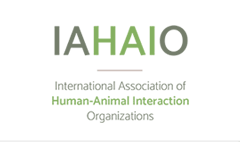Abstract
Among other regions, Romania and Mexico (particularly Mexico City) are often cited as problematic areas in surveys and reports on the growing population of stray animals in urban areas. The aim of our study was to adapt for Romanian and Spanish languages usage of an instrument that includes significant psychological and social dimensions of the attitudes toward animals (i.e., Attitudes toward Animals questionnaire [ATA]; Fehlbaum, Waiblinger, & Turner, 2010; Turner, 2010) and compare these attitudes between two countries that are confronted with similar situations regarding stray animals (dogs and cats). ATA consists of 27 statements on nature conservation, wild animals, farm animals, companion animals, meat eating, and animal feelings and cognition. The original version of ATA was translated into Romanian and Spanish. Data were collected from 295 Romanian respondents (2013–2014) and 302 respondents from Mexico City (2011–2012). Significant differences in the amplitude of the level of agreement or disagreement (not in the direction of the answers) were found between samples in 20 of the 27 items of the questionnaire, most of them regarding the utility and benefits of pet keeping and the attribution of thoughts and emotions to animals (i.e., Romanians had more favorable attitudes than Mexicans). Both samples expressed similar high levels of likeability toward dogs and cats and agreement about humane strategies of pet management, such as painless euthanasia. Stray dogs and cats are perceived as a public problem by both Romanian and Mexican participants, with the specification that cats are significantly seen as more problematic in Mexico City than in Romania.
Recommended Citation
Rusu, Alina Simona; Pop, Denisa; and Turner, Dennis C.
(2018)
"Geographically Apart, Attitudinally Very Close: A Comparison of Attitudes toward Animals between Romania and Mexico City,"
People and Animals: The International Journal of Research and Practice: Vol. 1
:
Iss.
1,
Article 2.
Available at:
https://docs.lib.purdue.edu/paij/vol1/iss1/2


